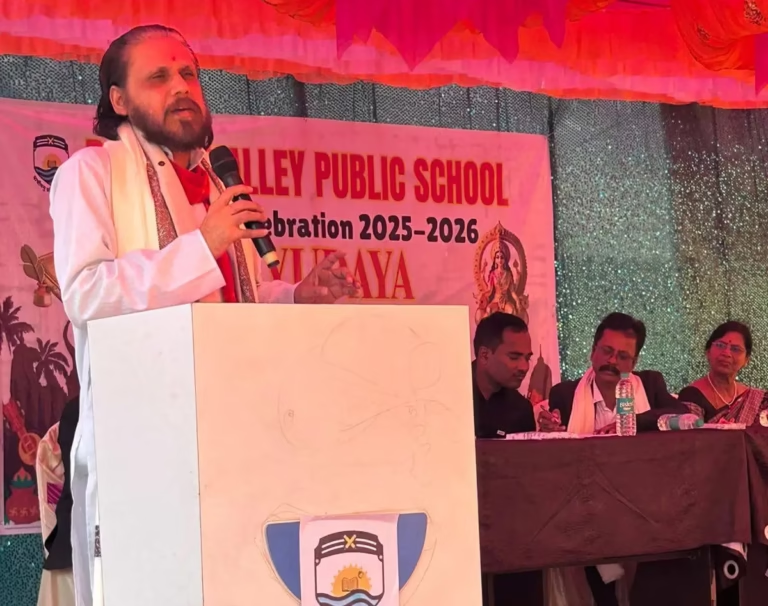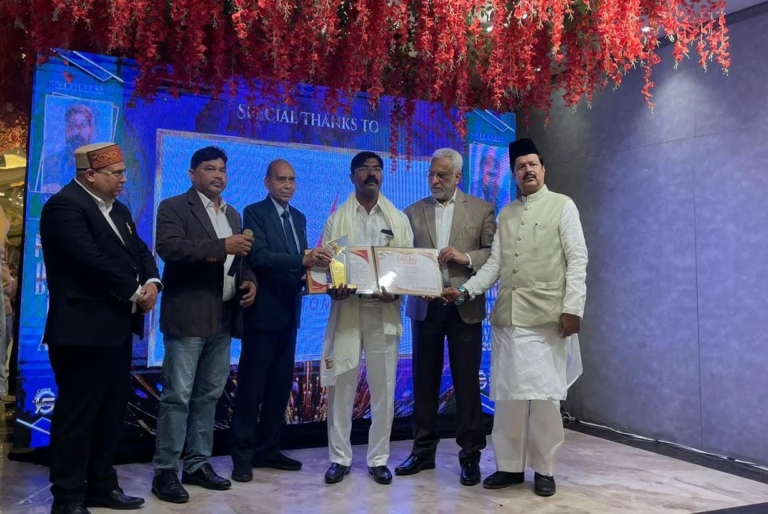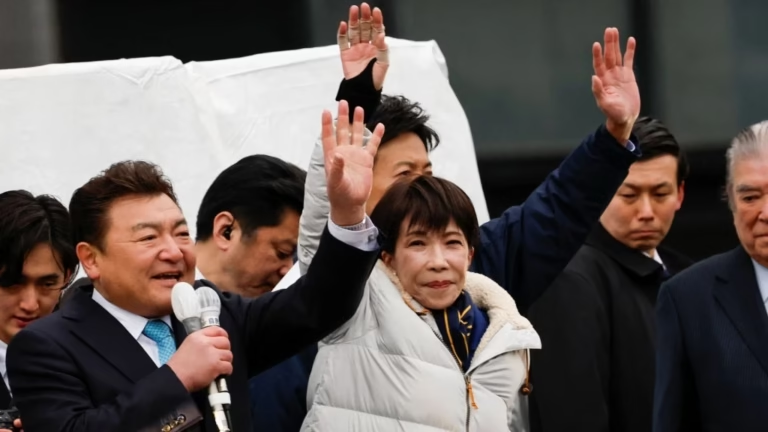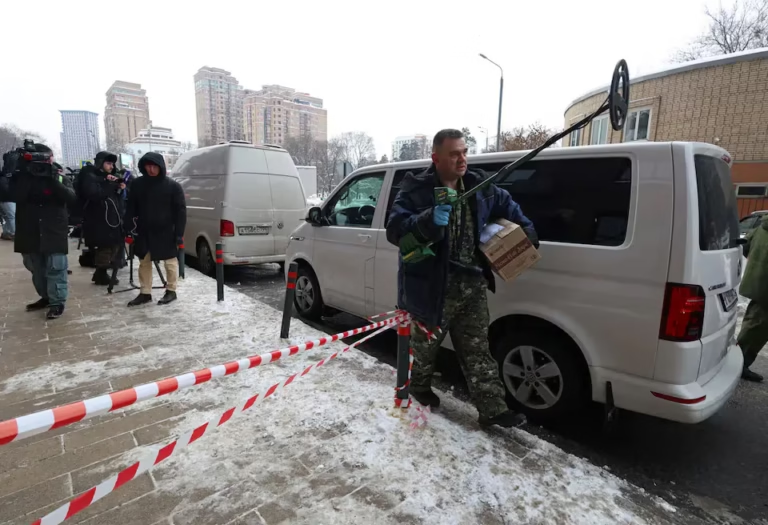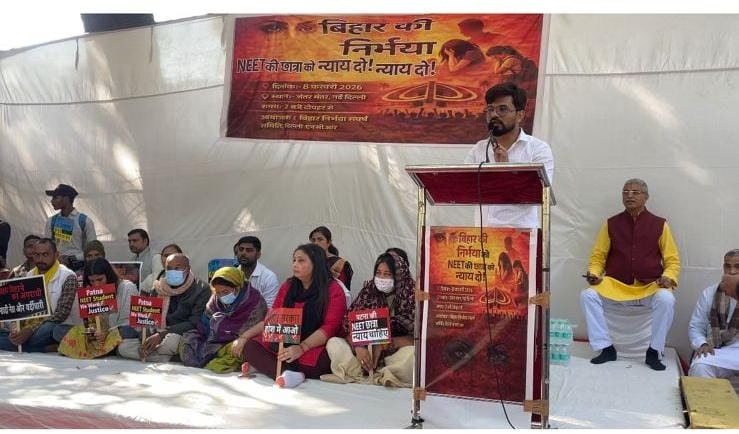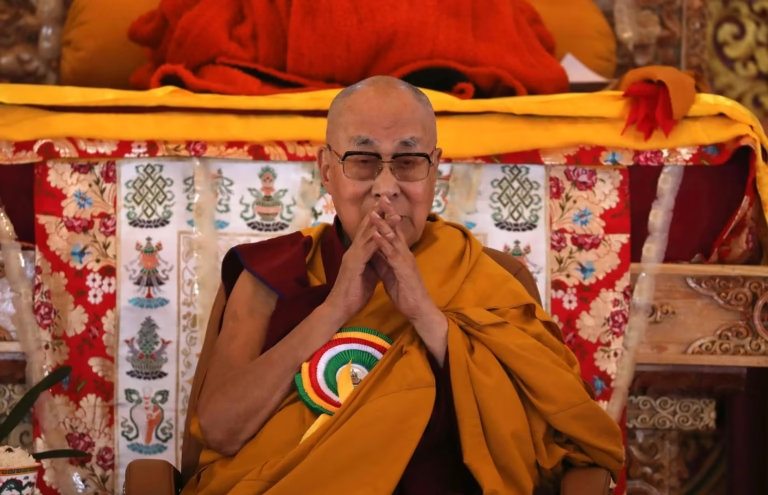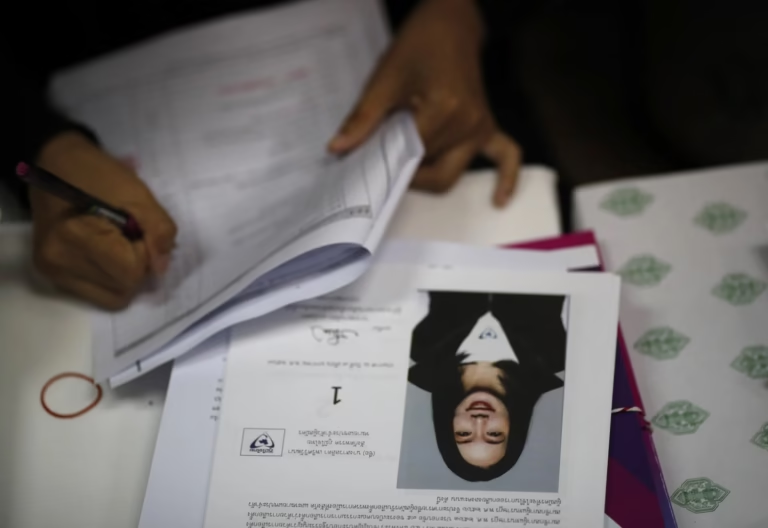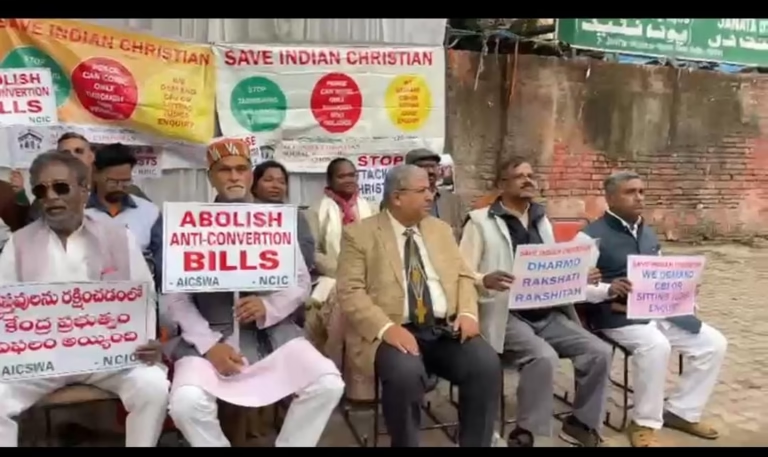Jakarta, Indonesia (Reuters) – Dozens of excited Indonesians waved on Tuesday as a motorcade carried Pope Francis through the capital as he began the first leg of an ambitious Asia-Pacific tour expected to urge global action on climate change as part of his longest trip yet.
The 87-year-old pontiff, who will also visit East Timor, Singapore and Papua New Guinea over the next 10 days, was seated in a wheelchair as a lift disembarked him from a chartered aircraft at Jakarta airport.
READ MORE : Pope Francis meets at Vatican with relatives of Israeli hostages and Palestinians living in Gaza
Two children in traditional clothes presented a bouquet of local produce before the pope was greeted by Indonesia’s religious affairs minister, its Vatican envoy and several of its bishops on a red carpet flanked by honour guards.
Francis then drove off in a waiting car, waving and smiling. As his motorcade passed through Jakarta towards the Vatican embassy, where he is staying, small crowds of people were seen waving excitedly.
“I’m so happy, I feel so blessed,” said Enny Rahail, 52, who travelled 3,000 km (1,860 miles) to Jakarta from her home in southeast Maluku before standing for two hours in mid-day heat to wave to the pope outside the embassy.
“As Indonesians we are happy because the Catholic leader comes to our country,” said Enny, who called Francis an “advocate for peace” and said she cried as the pope arrived.
The ageing pope was not set to attend any public events on Tuesday, to allow him time for rest after the 13-hour overnight flight from Rome.

But shortly after arriving at the embassy, Francis held an informal meeting with a group of refugees living in Indonesia.
The Vatican gave few details, but said the group included persons from Somalia, Sri Lanka and members of the persecuted Rohingya minority from Myanmar.
The pontiff is set to travel nearly 33,000 km (21,000 miles)on the 12 days of the Asia-Pacific tour, before he arrives back in Rome late in the evening of Sept. 13.
At the beginning of his flight to Jakarta, Francis spent roughly half an hour individually greeting the accompanying journalists, leaning on a cane as he walked slowly around the back of the aircraft, chatting and shaking hands.
He offered only a few words about the trip, saying the coming days would represent his longest voyage abroad.
DIVINE BLESSINGS
Francis, who is not only the leader of the world’s 1.4 billion Catholics but also the Vatican’s head of state, wired customary greetings to every country he crossed on the way to Indonesia, including Iran, India, Pakistan and Turkey.
He offered prayers of peace, hopes for prosperity, or divine blessings, in messages varying with each country.
An address to Indonesia’s political leaders on Wednesday will be the pope’s first official event. The following day, he will participate in an inter-religious meeting at Southeast Asia’s largest mosque, the Istiqlal Mosque.
Francis, who pushed for the 2015 Paris climate pact, is expected to continue voicing appeals to confront the dangers of a warming globe.
Jakarta, the Indonesian capital home to at least 10 million people, is vulnerable to climate change, as it tackles chronic flooding and sinking land. The government is building a new capital, Nusantara, on the island of Borneo.
Just 3% of a population of about 280 million is Catholic in Indonesia, which is the world’s most populous Muslim-majority nation.
“This is a very historic visit,” Indonesian President Joko Widodo told reporters before the pope’s arrival, offering Francis a warm welcome on a long-planned visit that had been delayed by the COVID-19 pandemic.
“Indonesia and the Vatican have a similar commitment to cultivate peace and brotherhood as well as ensure prosperity for the people.”
(This story has been refiled to add the dropped word ‘who’ in paragraph 5)
Reporting by Joshua McElwee and Stanley Widianto; Additional reporting by Willy Kurniawan, Ananda Teresia and Gayatri Suroyo; Editing by Martin Petty and Clarence Fernandez FOR Reuters



